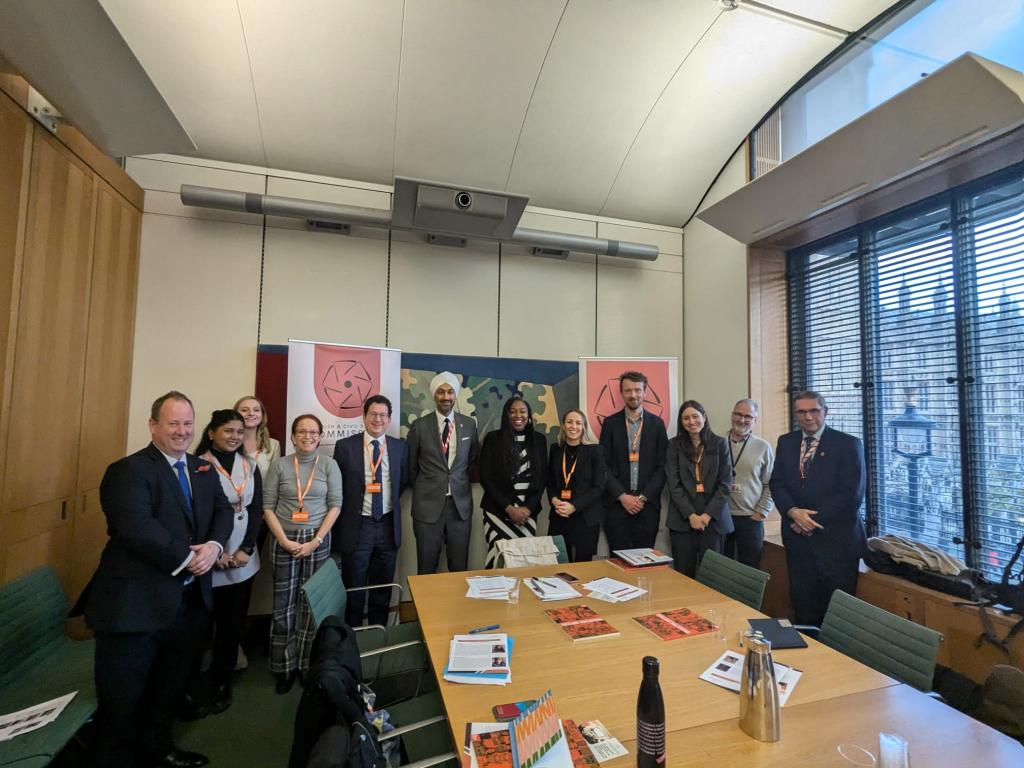In the summer of 2024, the UK government unveiled its plan to regulate the most powerful artificial intelligence (AI) models. On 4 November, ECNL was invited to speak at the roundtable “Regulating AI in the UK: Lessons learnt from the EU AI Act”, organised by the AI Faith & Civil Society Commission for the UK Parliament.
The roundtable, chaired by Member of Parliament (MP) Florence Eshalomi and Big Brother Watch Director Silkie Carlo, brought together key members of the two Houses of Parliaments as well as academic experts and UK civil society representatives to discuss AI regulation in the UK.
Our Senior Legal Advisor Francesca Fanucci – together with AccessNow Senior Policy Analyst Daniel Leufer – presented the key developments, challenges and successes of civil society’s involvement in the shaping of the EU AI Act and the Council of Europe Framework Convention on AI and Human Rights, Democracy and the Rule of Law. The latter was signed on 7 September by the UK government and is awaiting ratification.
As the UK looks towards its own AI regulatory framework, ECNL reflected on the insights gained from advocating for a EU and European-wide regulation, and dwelled on their key similarities and differences. Following several questions from MPs on how a “UK AI Act” should be framed in a way that protects human rights while not stifling innovation and withstanding rapid technological developments, ECNL advised the legislators to:
- adopt a rights-based approach;
- establish a horizontal regulatory framework covering all AI systems without blanket sectoral exemptions – therefore addressing, national security and national defence with specific safeguards regarding their impact on human rights;
- impose clear procedural obligations on both the private and public sector;
- conduct meaningful consultations throughout the decision-making cycle with all the relevant stakeholders, including civil society and marginalised groups;
- mandate human rights impact assessments, including on the right to a healthy and sustainable environment, to be conducted iteratively and with meaningful participation of all the relevant stakeholders, including civil society and marginalised groups;
- when establishing any potential classification of risks – including unacceptable risks conducive to a ban of certain AI systems – allow periodical review or trigger mechanisms actionable by rights-holders to denounce the effective risks occurring in a specific context and request a review of their classification.
ECNL will continue to collaborate and provide expertise to the AI Faith & Society Commission and the other stakeholders to assist in the development of AI policies at national level that effectively enable civic space and participation.
